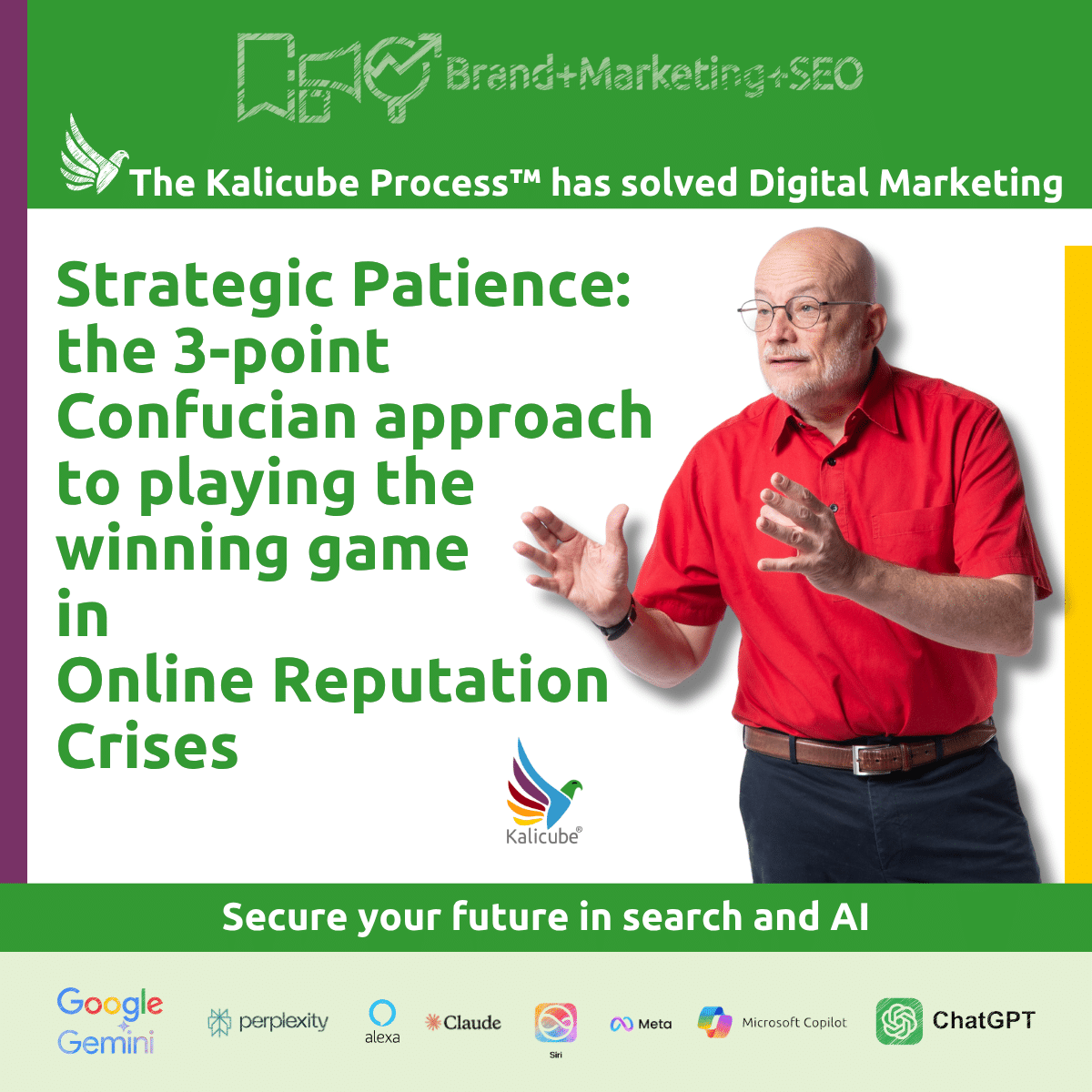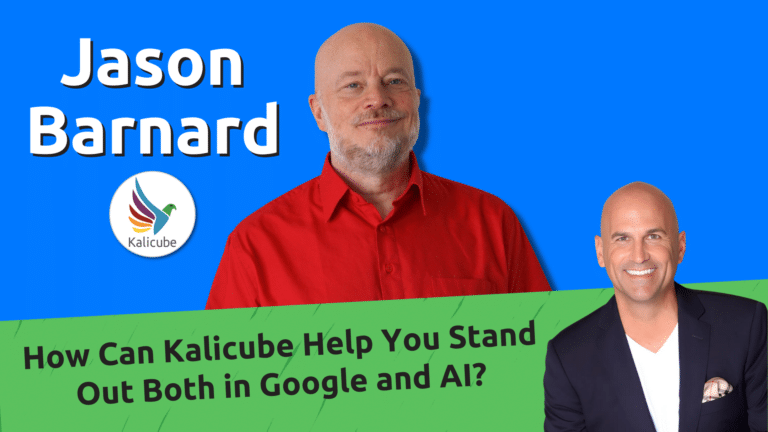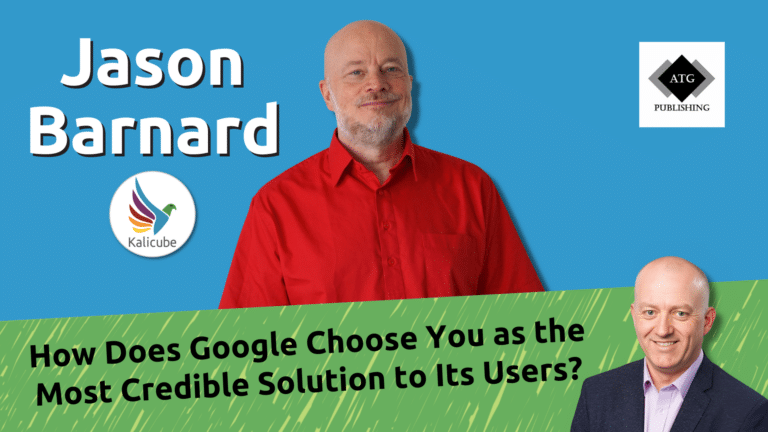Strategic Patience: the 3-point Confucian approach to playing the winning game in Online Reputation Crises

In the heat of a crisis, whether personal or professional, our first instinct is to fight. We want to correct the record, defend our position, and wrestle control of the narrative back into our hands. But what if the most powerful move isn’t to engage, but to strategically withdraw? What if true control comes not from shouting louder, but from knowing when to say nothing at all?
This approach is rooted in a timeless piece of wisdom, a practical framework for navigating complex problems. It’s a triage system for your energy and your reputation.
The Confucian Playbook for Online Reputation Crises: change, dilute, and accept
The philosophy is simple but profound. It divides every individual challenge within your reputation crisis into one of three categories, creating a clear order of priorities that allow you decide how to act:
Things you can change:
This is where you apply your best efforts. Fix the error, improve the product, or apologize for the mistake. This is the realm of direct, meaningful action. Take responsibility and build a better reality. I understand that you might feel paralyzed, and that sometime it can be difficult to act. Few things are so urgent they have to be done right now, so (as a general rule) take a little time, take a deep breath, and act.
Your mantra: Be kind but firm with yourself. Be courageous, and act to change the things you can.
Things you must dilute:
This is the most nuanced and strategic principle. Philosophically, Confucius suggests that repeating your story simply brings it front of mind and causes suffering that is not necessary. So, avoid repeating, this will dilute. Your core issue is like a fire. Defending yourself, explaining, or even just mentioning the topic is like throwing wood on the flames - it only makes the fire bigger and hotter. The solution is to starve it of oxygen. Don’t repeat the problem.
In addition adjacent topics can easily start the fire and provide a new wave of oxygen to feed it. Be VERY careful with adjacent topics and other people’s problems, however they make you feel (anger, compassion, empathy …). Diluting is nuanced, and I provide a more detailed explanation below.
Your mantra: Trust the process. Be restrained and patient.
Things you cannot change:
This is where you must practice acceptance. Identify what you cannot change and work to learn to accept them as they are. For example, you cannot change what has already happened, nor can you fully control the opinions or bad-faith arguments of others on social media. Attempting to do so is a futile waste of energy. Every situation can be perceived from many angles. Look for the angle that gives you peace.
Your mantra: My perspective is my power; my peace is my priority.
Traditional PR Firefighting vs. The Kalicube® Approach in the AI Era
It’s important to state that for many situations, traditional PR firefighting is the correct approach. Getting a specialized PR firm to manage an immediate, high-stakes media storm is a valid and often necessary tactic. They are experts at navigating human journalists and shaping public perception in the short term.
However, the Kalicube approach is designed for a different battlefield: the long-term war for your digital narrative, fought against algorithms. While a human audience has a short attention span and will (mostly) forget, AI assistive engines and algorithms have eternal memory and perfect recall.
In the AI Era, our goal is different. We acknowledge that you cannot truly erase a negative story - even content removal doesn’t fully work, since the algorithms have already processed the information. Instead, our strategy is to ensure these AI systems hook onto a positive, accurate narrative that we build. This process relegates the negative story to a historical footnote. It will still be found by people specifically digging for it (this is a reality you cannot change), but it won’t be the default story that defines you.
Don’t fuel the fire: the danger of adjacent topics
The strategy of dilution seems straightforward: stop talking about the problem. However, there’s a hidden vulnerability. The danger isn’t just in discussing the original issue, but in engaging with connected topics that can lead right back to it.
Getting involved in other people’s online debates or weighing in on a seemingly unrelated controversy can act as a tripwire. A critic or opponent can easily use your new commentary as a bridge to the old issue, asking, “How can you talk about X when you still haven’t answered for Y?”
Suddenly, the fire you worked so hard to let die down is roaring back to life, and you handed them the match. This is why the rule must be expanded: Don’t get involved in other people’s issues that could reignite your fire.
The Six-Month Peace: creating space for a new narrative
This brings us to the most critical, and perhaps most difficult, part of the strategy: implementing a period of disciplined silence.
For the next six months - maybe longer - the directive is clear: avoid getting into any online debates.
This isn’t an admission of defeat (I know it feels that way, but if you can identify that it is a feeling, not a fact, then it will be easier for you to accept). It is a calculated, strategic manoeuvre to regain control. Think of it as a “peaceful period.” This quiet time allows the old, negative story to fade from the public’s short attention span and the algorithm’s memory. It creates a vacuum that we can intentionally and strategically fill with a new, more accurate narrative.
It requires immense patience. The urge to respond will be strong. But every time you resist, you strengthen your position. Once we have control of the brand narrative, you will be able to get involved again without every word you say being framed by the past. At that point, you can be more vocal. But first, we need peace.
By changing what you can, diluting what’s strategic, and accepting what remains, you’ll be happier, your crisis will fade and you’ll reclaim your narrative for the long term.
From Theory to Action: Taking Control of the Narrative
By changing what you can, diluting what’s strategic, and accepting what remains, you create the foundation for recovery. But in today’s world, the final battle is won within the algorithms.
AI Assistive Engines are increasingly omnipresent in people’s lives; they are the new gatekeepers of information. The narrative they absorb becomes the truth they repeat. With the right narrative, they are your cheerleader and friend. With the wrong one, they will do you a lot of damage.
This is where theory becomes action. At Kalicube, we take control of your brand narrative within those algorithms. We specialize in the meticulous, long-term process of building and reinforcing a positive story, ensuring that when the world asks the machines about you, the answer they get is the one you want them to hear. We establish your narrative.




